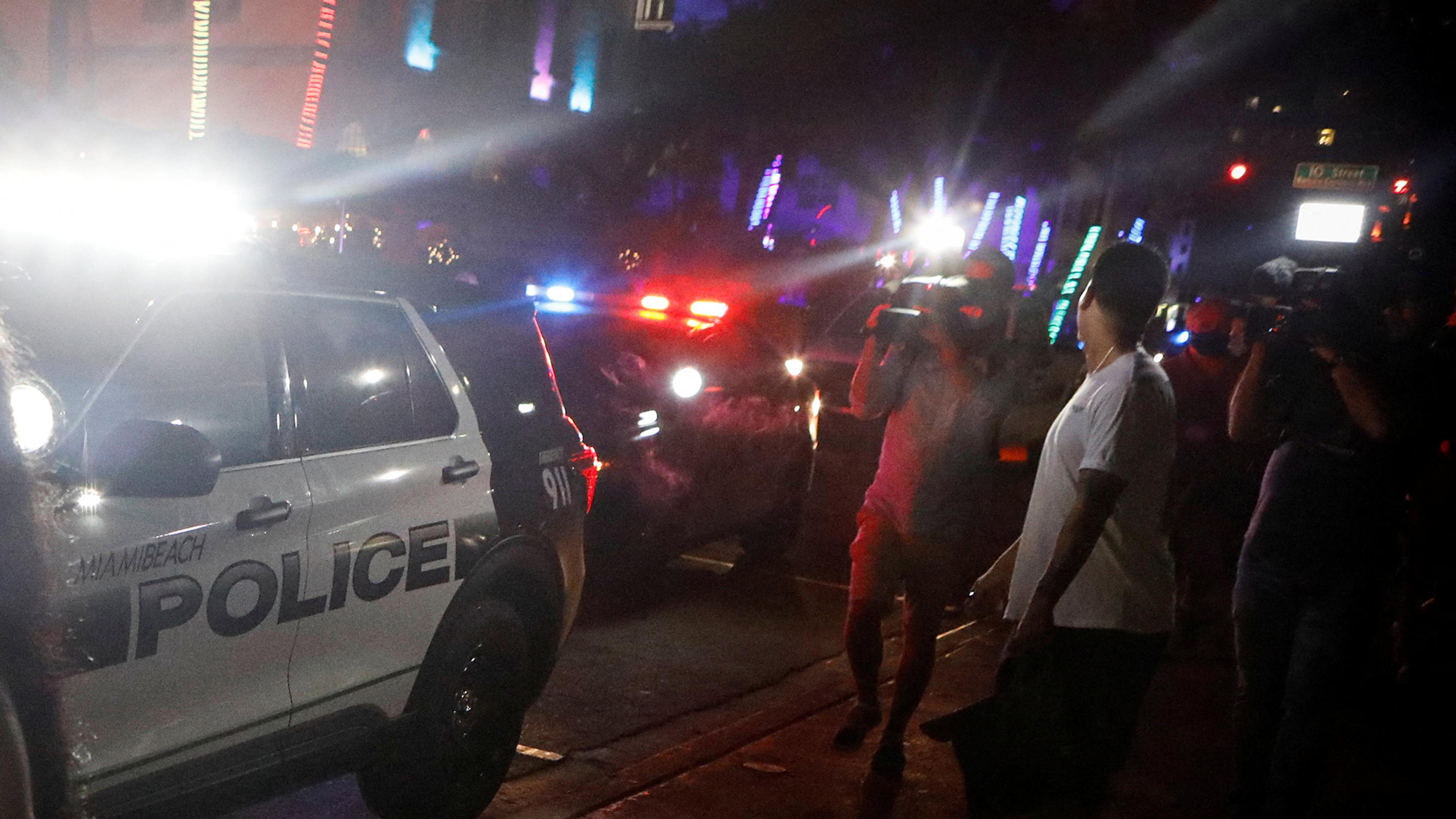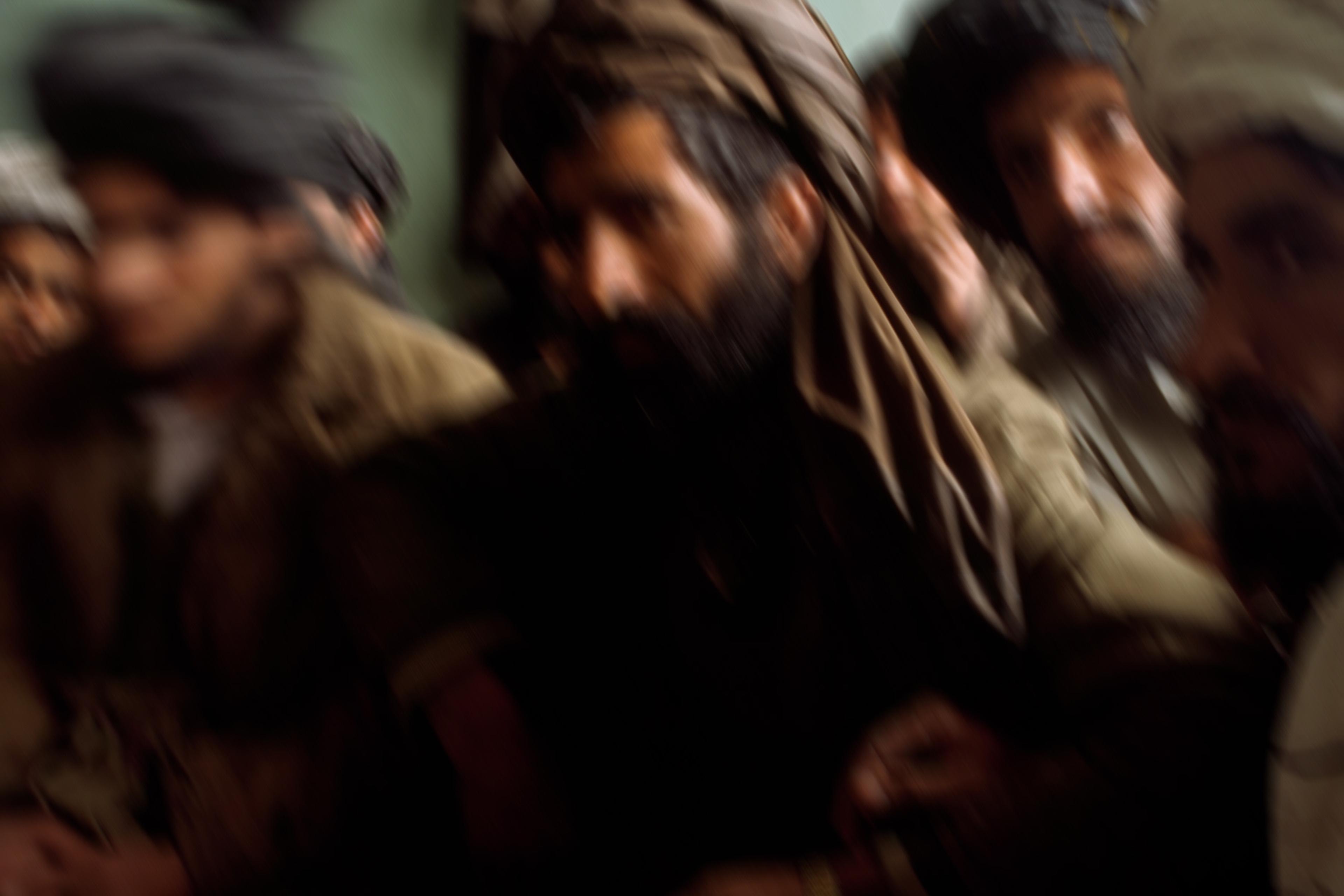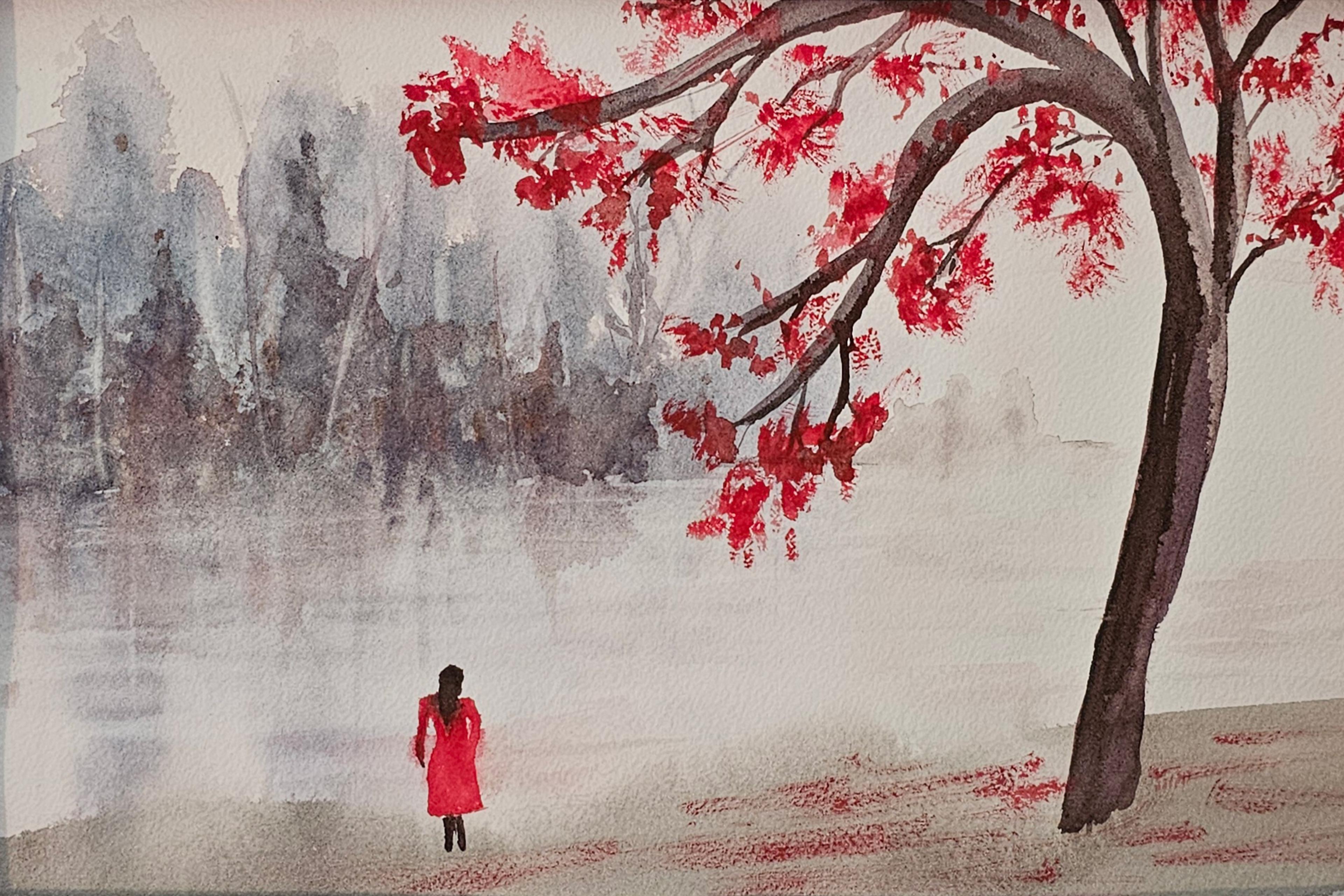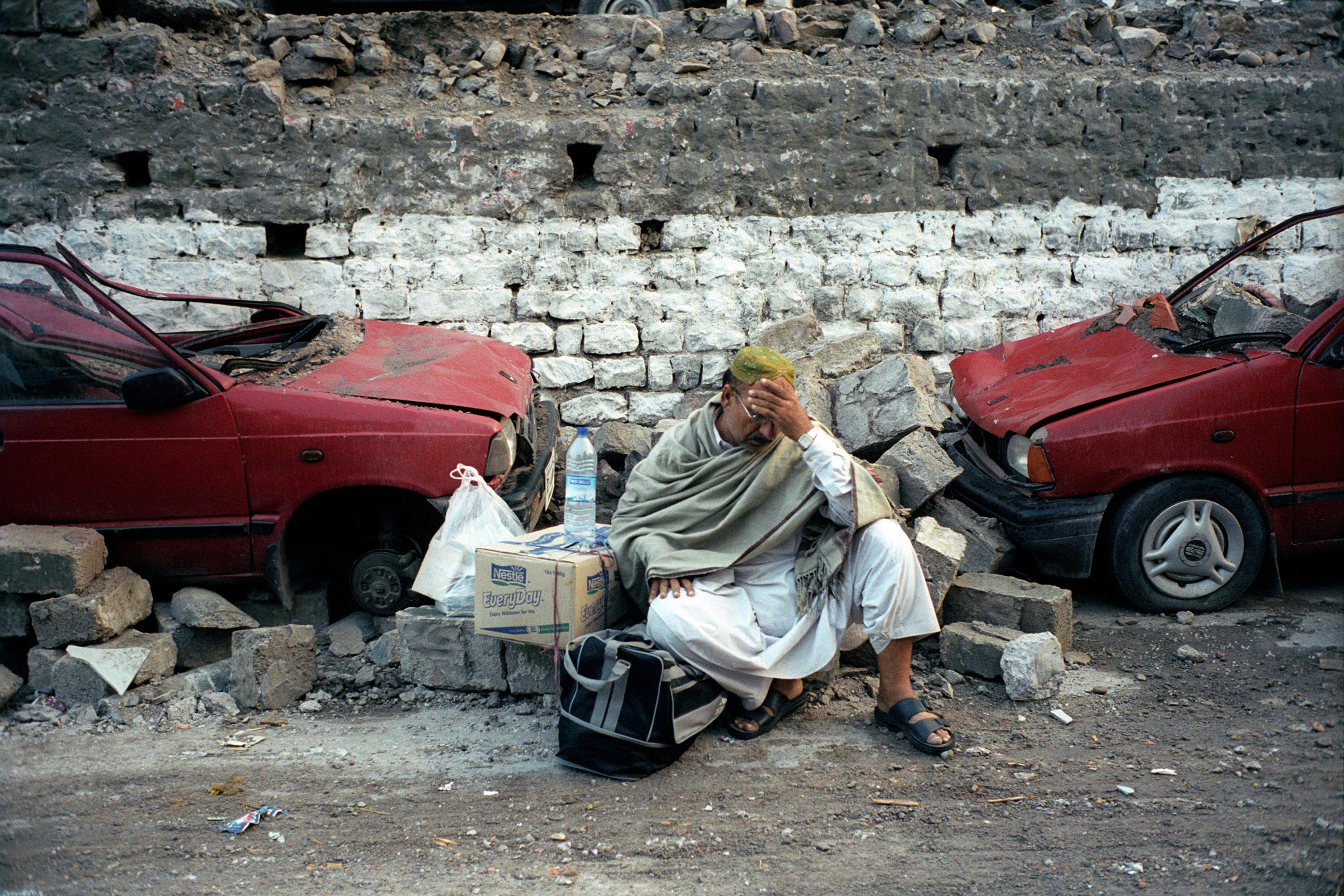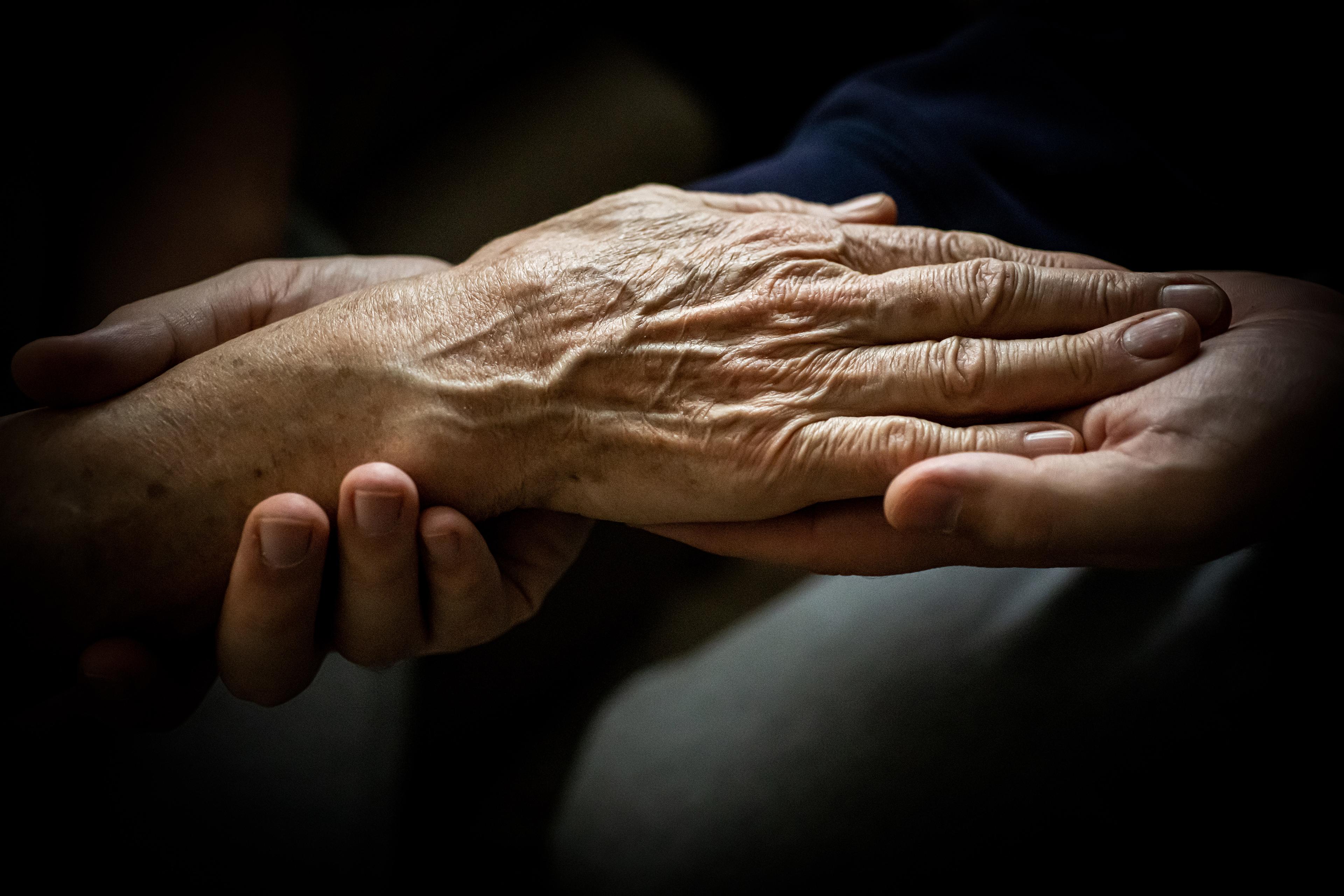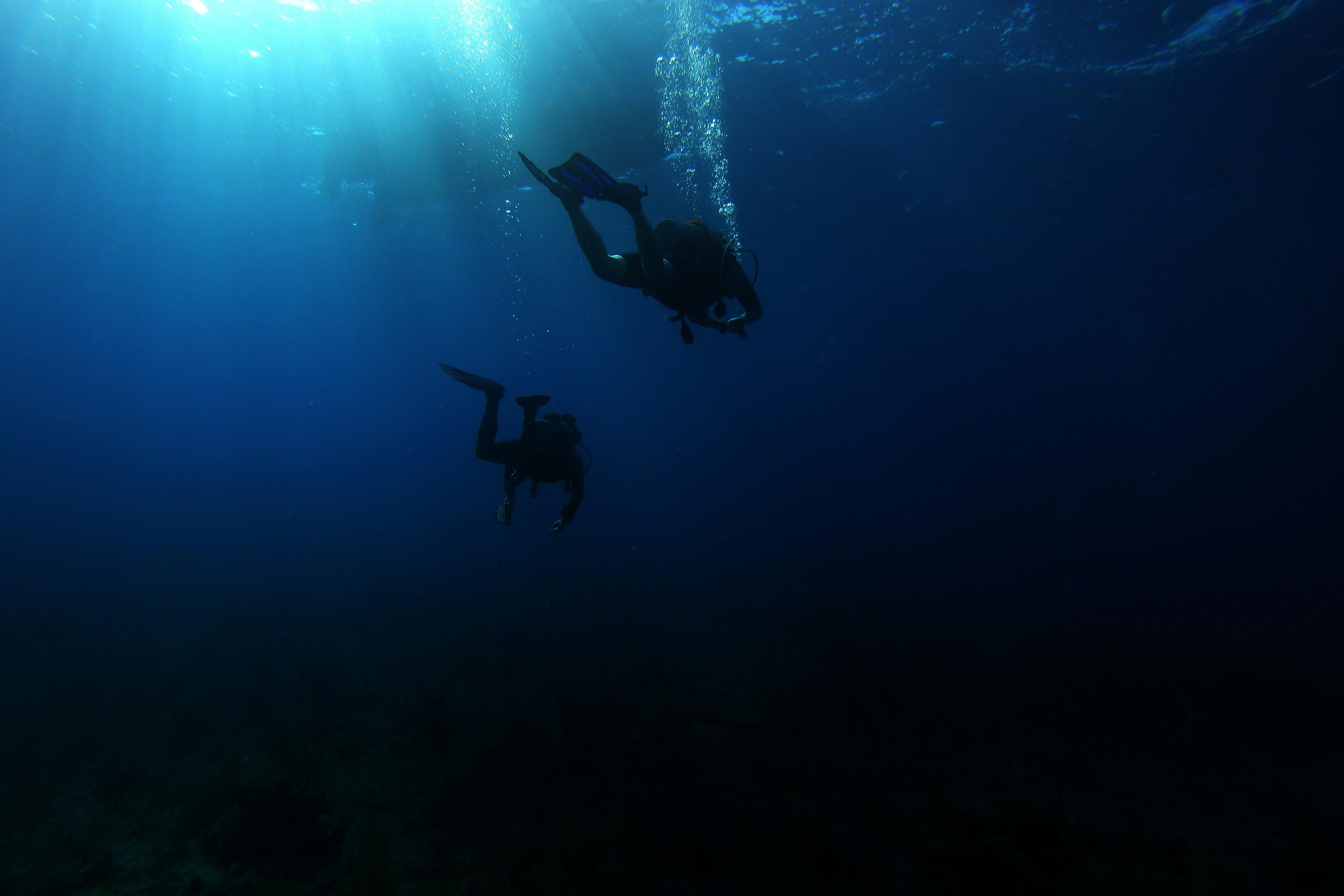Whenever I used to see a flock of starlings moving through the sky as one, I would marvel at the beauty. I would look up with my mouth slack, thinking: ‘So incredible, so free.’ But that was before the shooting. Now, whenever I see one of those murmurations, I wonder if the birds are actually moving that way because they’re terrified. Maybe the creepy beauty of it all is just a side-effect.
I moved that way once, on a steamy spring night in Miami’s South Beach. I was on a trip with friends, watching drag queens perform on the patio of a gay bar. One moment I was sipping an overpriced tequila sunrise, folding a damp $5 bill lengthwise in anticipation of eye contact from a glittery performer; the next moment my hips were hitting the ground in unison with the people around me.
All together we’d registered the sound of the gunshots and realised it was finally happening: the hypothetical moment we all subconsciously fear, the one that flashes within the folds of our brains when we enter a school or a grocery store or a place of worship or a movie theatre or a bar, especially a gay bar, that makes us note exits and potential escape routes, living day-to-day life like the world’s most boring tactical war video game. As the popping sound rose up then went flat in the soupy seaside air, we moved to the ground like one organism. We clutched our heads and tucked our knees. Drink glasses shattered all around us like fireworks.
I once saw a photograph of a dead baby elephant, his poachers’ puffy, ruddy faces grinning next to him, showing off his corpse like a prize. The elephant had curled into a fetal position in his dying moments, making himself feel small and protected again. I thought of that elephant as I waited for the electricity in my brain to go dark, permanently dark, but it didn’t. A herd of people ran past me and I slinked after them, hunched low.
The herd kept on going, but some of us stopped in the adjacent alley. I made eye contact with confused and panicked faces, wanting to talk but not wanting to risk making noise. Besides, what was there to say? So there was just thick silence, plus the sounds of my blood pumping in my ears, my own heavy, gurgling breathing. I looked over toward the green space beyond the strip. A distant DJ was still spinning thumping house music. Carnival lights still twinkled.
At this moment, I thought what had happened was that a gunman had targeted the bar. This felt like the logical conclusion. It’d be a gunman who watched cable news and YouTube clips about ‘the perversions’ and ‘the threats’, ‘the abominations’. ‘If only someone would think of the children,’ he’d likely been told. ‘If only someone would do something.’
My thoughts raced. Did the gunman go inside? Is it over or is the worst still to come? Where are my friends? The drag show was my idea. Where are my friends, where are my friends?
It wasn’t a mass shooting, we all realised together. It was some other type of shooting
I took a deep breath and made a wall-hugging run for the bar’s open doors. I moved through them without the electricity in my brain going out. I found two of my friends. My body folded up all on its own as I crouched into them, gratefully grabbing at their elbows, rubbing their brightly pedicured toes. We waited. Minutes passed in a stretched-out, almost condescending way. The silence screamed on.
Finally, an authoritative-looking man appeared by the bar. He seemed to be security, wearing only black shorty shorts and a black earpiece. He stood tall and peered out into the street. No more shots came. No lanky man in tactical gear charged forth. Bass still thumped in the distance, the sound of spring break continuing stupidly. The security man shook his head like a disappointed parent. He said he didn’t think the shooter was going to come into the bar. His certainty, combined with the absence of pops, prompted shaky relief. It wasn’t a mass shooting, we all realised together. It was some other type of shooting.
People began to rise from the floor and emerge from hiding spots. A cluster of our friends who’d fled to the bathroom wandered forward. We all embraced, trembling and crying a little. We checked each other for injuries like camp counsellors looking for ticks, turning each other around by the shoulders, inspecting skin with focus. Emily’s foot had a gash bad enough we decided we needed to go to the hospital. The sound of broken glass crinkling underfoot shifted up an octave as the pieces became smaller, finer, more thoroughly tread upon. Drag queens sipped the same cocktails they’d been drinking before this all started, their acrylic nails tapping musically against sweating highball glasses with no remaining ice.
As I waited to close our group’s tab, I thought of my husband, who’d just started teaching high school that academic year. We had worried he’d be the one hunkered and cowering before the guns, but instead it was I who had hunkered and cowered. Moments that now felt like awful foreshadowing popped into my mind. Gushing earlier over Emily’s pretty new dress, now daubed in blood. The tiny souvenir T-shirts that she’d bought just hours before for her children back in New York. The last photo I’d posted on Instagram before this trip, an image of a street mural depicting a tombstone engraved with the words ‘See you soon.’ I thought of my messy journals, the photos on my phone. All the disconnected totems of life I would have left behind for my loved ones if tonight had gone differently.
I am tempted to describe our gun world to you now. I have the statistics at my fingertips. The calculations of the carnage, the horrors quantified in charts, the studies and the abstracts. In the wake of our experience in Miami, I feel drawn to this data but almost immediately repulsed by it. It’s too obvious, too easy, even a little obscene. If I hold out my palm and point, if I show you all the evidence, then what? You say: ‘Yes, horrible.’ You say: ‘I know, unbelievable.’ We look at each other with a knowing stare and then we move on. The powerlessness is rounded and total, like an eclipse.
The people who control reality seem to be on a whole new level of gun inaction. We used to get so angry when they did nothing after a big shooting, but now we are so used to them doing nothing it has become unremarkable. The factory wheel of public chaos churns. The incidents appear in news headlines and then vanish. There aren’t even that many thoughts and prayers anymore.
Here’s a shooting at a mall. Here’s a shooting at a parade. Here’s one at a nail salon, a bowling alley, a Christmas party. After the massacre at Sandy Hook Elementary School, many opined that if we could allow this sort of carnage to befall babies at their desks, then we were truly lost. That was more than a decade ago. A civil lawsuit in Texas recently attempted to hold the parents of a school shooter, who in 2018 murdered 10 people using guns from his household, liable for damages. ‘If we’re not going to have gun control laws as it relates to sellers,’ a plaintiff’s attorney stated plainly, ‘we at least need laws on how people keep and store their guns if we’re going to protect our children.’ The lawsuit failed.
So, really. What is there to say?
The morning after the shooting, we stumbled down to the beach, trembling in colourful kaftans and SPF 50. We were determined to enjoy what was left of our vacation. The shooting hadn’t become acceptable to joke around with yet, so we mostly did a lot of gentle exhaling.
Before our shooting had even registered in public awareness, several more shootings shook Miami, dominating conversations at the beach and in the coffee shops, the violent details of which were different from the one we’d experienced. I started to feel a little unreal, wondering if the shattering glass and the running herd and the wet breathing hadn’t all just been a dream.
One man shot the other in the middle of the boardwalk. The shot one died. End of story. We all flew home
We tried to search for information, documentation, any certified proof that we’d suffered. My friend Lindsay looked up local news, but after we’d clicked through a few stories about the wrong shootings, the Miami Herald said we’d read all our articles for the day, and would we like to subscribe at a discounted rate for a limited time only? Elon Musk’s Twitter was full of robospam. Mark Zuckerberg’s Instagram was full of advertisements for stackable cookware and armpit toner and melatonin gummies. We learned that this incident was a blip on absolutely no one’s radar but our own.
We eventually got to the bottom of it, and the bottom didn’t provide much relief. Miami news outlets chalked up the shooting to a dispute between two men. One got out a gun and shot the other in the middle of the boardwalk. The shot one died. End of story. We all flew home.
A week or two later, I felt fine, and then a car on my block misfired and my body seized so completely that I pulled a muscle in my neck. I started crying in the shower without noticing and then, when I noticed, I’d attempt to make myself cry harder to get it over with. I’d walk the dog and stare at the pavement because I couldn’t bear to look up. I was afraid I’d accidentally perceive how the birds were moving and that it’d fill me with a nauseating guilt that I couldn’t explain.
It’s a peculiar kind of grief. This singularly American confusion of living in objectively immense privilege and peace, and yet there’s this low-thrumming terror that it could all be ripped away in an instant, for no reason. Just an uncanny, almost silly kind of terror. Assuming the brace position and wondering if there’s a heaven while the strobe lights pulse and the DJ plays on.
Shortly after I returned from my trip to Miami, there was a mass shooting in Louisville, Kentucky. Watching the news clips, I remembered the blood pumping, the ragged wet breathing. One survivor, a middle-aged man with everyday brown hair and everyday khaki pants, breathed with his whole upper body, his shoulders and torso rising and falling as if he were bobbing at sea. It was contagious. The local news reporter who’d been interviewing him stopped her questions, clasped his hand, and began breathing this way too, asking him between gulps of air if he’d like to borrow her phone to call his loved ones. He stared blankly at the ground while he tried to get his survival-mode brain to think about it, their bodies bobbing almost in unison. And then the interview cut away. There was so much more bad news to share, so many more victims of different types of suffering to feature. Back to the main newsroom. On to the next.
